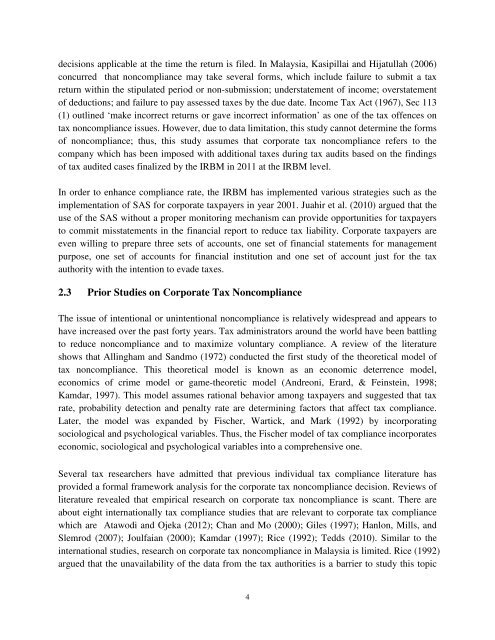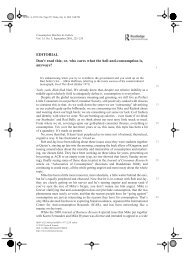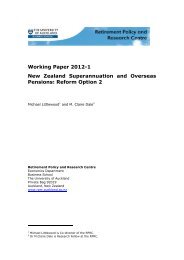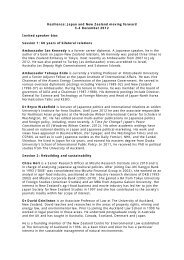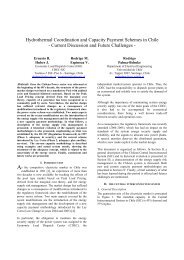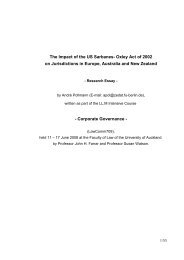TAX NONCOMPLIANCE AMONG SMALL and MEDIUM ...
TAX NONCOMPLIANCE AMONG SMALL and MEDIUM ...
TAX NONCOMPLIANCE AMONG SMALL and MEDIUM ...
You also want an ePaper? Increase the reach of your titles
YUMPU automatically turns print PDFs into web optimized ePapers that Google loves.
decisions applicable at the time the return is filed. In Malaysia, Kasipillai <strong>and</strong> Hijatullah (2006)<br />
concurred that noncompliance may take several forms, which include failure to submit a tax<br />
return within the stipulated period or non-submission; understatement of income; overstatement<br />
of deductions; <strong>and</strong> failure to pay assessed taxes by the due date. Income Tax Act (1967), Sec 113<br />
(1) outlined ‘make incorrect returns or gave incorrect information’ as one of the tax offences on<br />
tax noncompliance issues. However, due to data limitation, this study cannot determine the forms<br />
of noncompliance; thus, this study assumes that corporate tax noncompliance refers to the<br />
company which has been imposed with additional taxes during tax audits based on the findings<br />
of tax audited cases finalized by the IRBM in 2011 at the IRBM level.<br />
In order to enhance compliance rate, the IRBM has implemented various strategies such as the<br />
implementation of SAS for corporate taxpayers in year 2001. Juahir et al. (2010) argued that the<br />
use of the SAS without a proper monitoring mechanism can provide opportunities for taxpayers<br />
to commit misstatements in the financial report to reduce tax liability. Corporate taxpayers are<br />
even willing to prepare three sets of accounts, one set of financial statements for management<br />
purpose, one set of accounts for financial institution <strong>and</strong> one set of account just for the tax<br />
authority with the intention to evade taxes.<br />
2.3 Prior Studies on Corporate Tax Noncompliance<br />
The issue of intentional or unintentional noncompliance is relatively widespread <strong>and</strong> appears to<br />
have increased over the past forty years. Tax administrators around the world have been battling<br />
to reduce noncompliance <strong>and</strong> to maximize voluntary compliance. A review of the literature<br />
shows that Allingham <strong>and</strong> S<strong>and</strong>mo (1972) conducted the first study of the theoretical model of<br />
tax noncompliance. This theoretical model is known as an economic deterrence model,<br />
economics of crime model or game-theoretic model (Andreoni, Erard, & Feinstein, 1998;<br />
Kamdar, 1997). This model assumes rational behavior among taxpayers <strong>and</strong> suggested that tax<br />
rate, probability detection <strong>and</strong> penalty rate are determining factors that affect tax compliance.<br />
Later, the model was exp<strong>and</strong>ed by Fischer, Wartick, <strong>and</strong> Mark (1992) by incorporating<br />
sociological <strong>and</strong> psychological variables. Thus, the Fischer model of tax compliance incorporates<br />
economic, sociological <strong>and</strong> psychological variables into a comprehensive one.<br />
Several tax researchers have admitted that previous individual tax compliance literature has<br />
provided a formal framework analysis for the corporate tax noncompliance decision. Reviews of<br />
literature revealed that empirical research on corporate tax noncompliance is scant. There are<br />
about eight internationally tax compliance studies that are relevant to corporate tax compliance<br />
which are Atawodi <strong>and</strong> Ojeka (2012); Chan <strong>and</strong> Mo (2000); Giles (1997); Hanlon, Mills, <strong>and</strong><br />
Slemrod (2007); Joulfaian (2000); Kamdar (1997); Rice (1992); Tedds (2010). Similar to the<br />
international studies, research on corporate tax noncompliance in Malaysia is limited. Rice (1992)<br />
argued that the unavailability of the data from the tax authorities is a barrier to study this topic<br />
4


